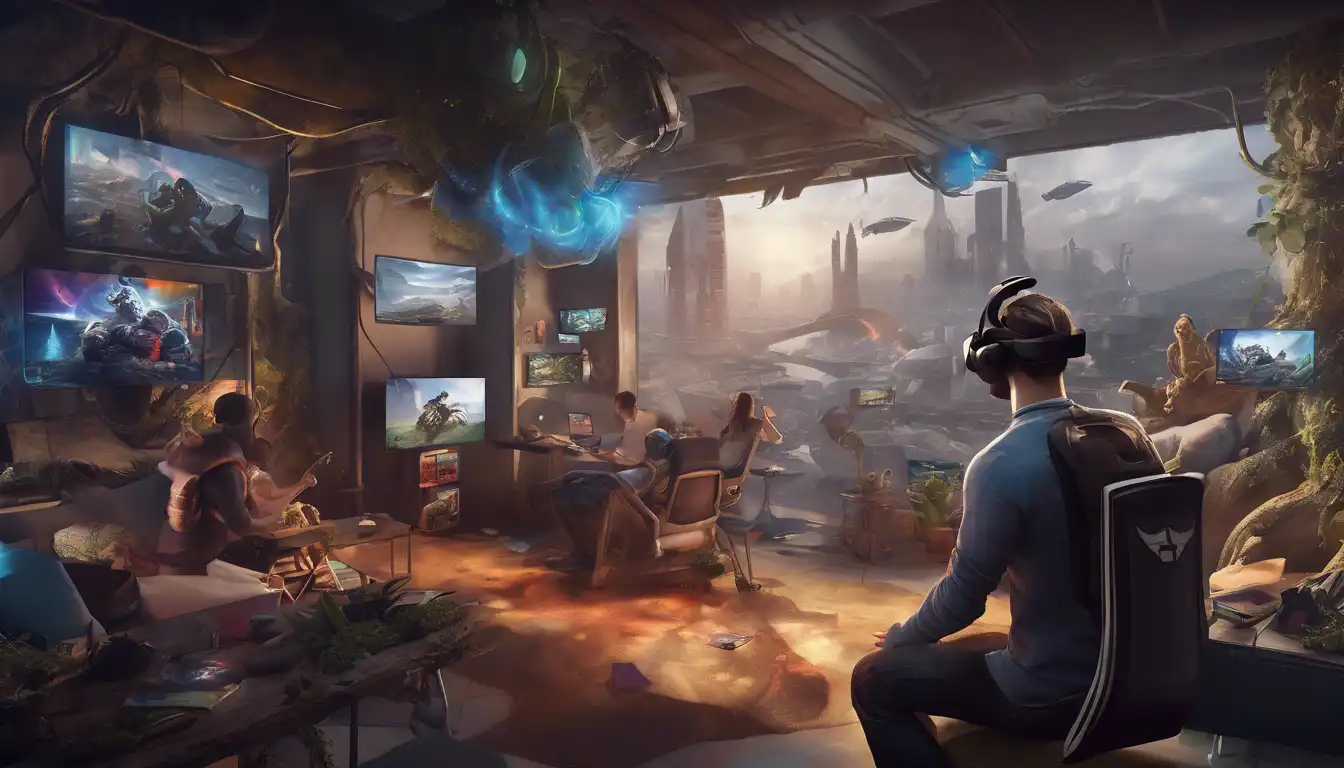The Revolutionary Impact of Virtual Reality on the Gaming World
Virtual Reality (VR) has emerged as a groundbreaking technology that is reshaping the gaming industry in unprecedented ways. By offering immersive experiences that were once the stuff of science fiction, VR is setting new standards for what gamers expect from their entertainment. This article explores the transformative effects of VR on gaming, from enhanced gameplay to new opportunities for developers and players alike.
Immersive Gameplay Like Never Before
One of the most significant contributions of VR to the gaming industry is the level of immersion it offers. Players are no longer just controlling a character on a screen; they are stepping into the game world itself. This deep level of engagement is changing how games are designed, played, and experienced. For instance, games like Half-Life: Alyx have demonstrated the potential of VR to deliver compelling narratives and interactive environments that are unparalleled in traditional gaming.
New Opportunities for Game Developers
VR technology is not just transforming the player's experience; it's also opening up new avenues for game developers. The unique challenges and opportunities presented by VR require innovative approaches to game design, storytelling, and user interaction. Developers are now exploring ways to leverage VR's capabilities to create games that are more engaging, interactive, and realistic than ever before. This has led to the rise of VR-specific studios and a surge in VR game development.
The Social Aspect of VR Gaming
Beyond single-player experiences, VR is also enhancing the social aspects of gaming. Multiplayer VR games and platforms like VRChat allow players to interact with each other in virtual spaces, creating a sense of presence and community that traditional online games can't match. This social dimension adds a new layer to gaming, making it a more collaborative and shared experience.
Challenges and Future Prospects
Despite its potential, VR gaming faces challenges, including high costs and the need for specialized equipment. However, as technology advances and becomes more accessible, these barriers are expected to diminish. The future of VR in gaming looks promising, with ongoing developments in hardware, software, and content that promise to further revolutionize the industry.
In conclusion, VR is not just changing the gaming industry; it's redefining it. From immersive gameplay to new development opportunities and enhanced social interactions, VR is setting the stage for the next era of gaming. As the technology continues to evolve, we can expect even more innovative and exciting developments in the world of VR gaming.
